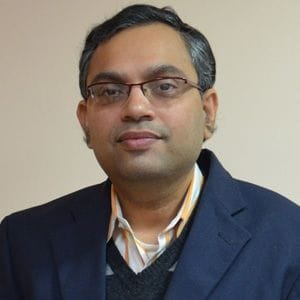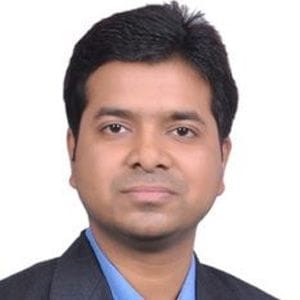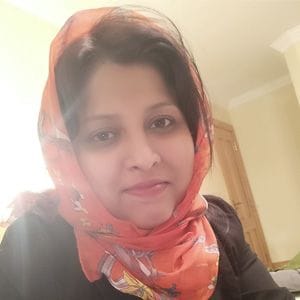This year, we are excited to present a curated selection of interviews, research articles, and insights that highlight India's remarkable achievements in science and technology.

As India celebrates National Technological Day 2025 on May 11, the country’s key progress in science and technology throughout the past year offers much to reflect on—and even more to look forward to. This is also a reminder and tribute to global innovations, technological trends, collaboration, knowledge sharing and contributions to tech-related initiatives, fostering a culture of learning and innovation.
India marked major technological milestones in 2024, reinforcing its status as a global innovation hub. The focus area covered developments in Quantum Advancements, Artificial Intelligence (AI), Semiconductors, Clean energy, Water technology initiates, Space and Bioeconomy. Strategic partnerships, like the one with Nvidia for custom AI chip development, highlighted India's AI ambitions. The expansion of 5G networks and the launch of 6G research at IIT Madras showcased telecom leadership. Growth in semiconductor manufacturing under the Scheme for Promotion of Manufacturing of Electronic Components and Semiconductors (SPECS), with projects generating newer jobs opportunities, emphasized India’s push for technological self-reliance.
These accomplishments collectively underscore India's ascent as a global technology leader—driven by a commitment to innovation, sustainability, self-reliance, and digital empowerment.
To mark this occasion, we present a curated selection of interviews, research articles, and other insights that underscore the pivotal role of basic sciences in driving technological advancement.
Perspectives from Scientific Leaders in India
In these short interviews, researchers and educators talk about the various aspects of dynamic research and technological impact in the country. These interviews help foster greater communication among the scientific community.
Prof. Suman Chakraborty

Prof. Suman Chakraborty, Institute Chair Professor at IIT Kharagpur’s Mechanical Engineering Department and a Sir J. C. Bose National Fellow, is renowned for his pioneering work in micro/nanofluidics and biomedical applications. His accolades include the Infosys Prize, Santi Swaroop Bhatnagar Prize, UNESCO-TWAS Award, and National Award for Teachers. He is a Fellow of APS, RSC, ASME, and all major Indian science academies. With 560+ publications and 17,000+ citations, his research ranks among Asia’s top 100. Prof. Chakraborty is also recognized for innovations in affordable healthcare technologies and holds numerous patents, reflecting his commitment to science for societal benefit.
Prof. Mayank Shrivastava

Prof. Mayank Shrivastava is a Full Professor at the Indian Institute of Science, Bangalore, co-founder of AGNIT Semiconductors Pvt. Ltd., and Investigator for setting up Gallium Nitride prototyping Fab worth $50M. For his Ph.D. work, he received Excellence in Research award and the Industrial Impact award from IIT Bombay in the year 2010. Prior to joining IISc in 2013, he held positions in Infineon Technologies, Germany & USA; IBM Microelectronics, USA and Intel Corp, USA and Germany.
Prof Shrivastava’s work has resulted in over 270 peer-reviewed international publications of high repute and over 60 patents. Most of these patents are either licensed by semiconductor companies or/and are in use in their products. He has trained over 40 PhD students, 12 postdocs and 100+ master’s & research staffs. He is among the first recipients of the Indian section of the American TR35 award (2010) and the first Indian to receive IEEE EDS Early Career Award (2015). He is an Editor of several IEEE Journals and has served on the technical and executive committees of more than a dozen international conferences around the world. Besides, he is an IEEE EDS Distinguished Lecturer and an elected member of the IEEE EDS Board of Governors. Overall, he is a recipient of over 25 national and international awards, recognitions, and honors of high repute including DST Swarnajayanti Fellowship, VASVIK Award, Abdul Kalam Technology Innovation Award and all young scientist awards from Indian academies.
Dr. Nusrat Sanghamitra

Dr. Nusrat Sanghamitra is a scientist turned entrepreneur committed to make a meaningful difference in people's life by her endeavors. As Founder & CEO of CyGenica and inventor of GEENIE—a first-in-class protein nanoneedle with a novel drug delivery mechanism—she is tackling some of the hardest challenges intracellular delivery. Recognized among the 75 Women in Chemistry by the Royal Society of Chemistry and the Principal Scientific Advisor’s Office, she has secured global patents, fundings, major pharma partnerships, and awards including the National Technology Startup Award. Dr. Sanghamitra is advancing India’s leadership in deeptech biotech and inspiring future innovators worldwide.
Explore Key Articles Published in ACS Journals
A Biohydrogel-Enabled Microneedle Sensor for In Situ Monitoring of Reactive Oxygen Species in Plants
Nawab Singh, Qinming Zhang, Weihui Xu, Steven A. Whitham, and Liang Dong*
DOI: 10.1021/acssensors.4c02645
Read the blog post highlighting this research.
Tailoring Alkyl Side Chains of Ionizable Amino-Polyesters for Enhanced In Vivo mRNA Delivery
Aida López Espinar, Lianne M. Mulder, Mohamed Elkhashab, Zahra Khan, Mariusz Czarnocki-Cieciura, Maria R. Aburto, Sonja Vucen, and Piotr S. Kowalski*
DOI: 10.1021/acsabm.5c00116
Gaseous and Particulate Emissions from a Small Business Jet Using Conventional Jet A-1 and a 30% SAF Blend
Lukas Durdina*, Zachary C. J. Decker, Jacinta Edebeli, Curdin Spirig, Tobias Frischknecht, Julien G. Anet, Benjamin T. Brem, Frithjof Siegerist, and Theo Rindlisbacher
DOI: 10.1021/acsestair.5c00053
Regulating Biocondensates within Synthetic Cells via Segregative Phase Separation
Chang Chen, Caroline M. Love, Christopher F. Carnahan, Ketan A. Ganar, Atul N. Parikh, and Siddharth Deshpande*
DOI: 10.1021/acsnano.4c18971
Functionalized Glass Fibers in Reversible Networks─A Cross-Road to Dimensional Stability and Facile Recycling of Cross-Linked Elastomers
Karla Garfias, Inger Odnevall, Minna Hakkarainen, and Karin Odelius*
DOI: 10.1021/acssuschemeng.5c01615
Quantification of Maillard Reaction Products in Doce de Leite
Natalia Casas Mesa, Caroline Barroso dos Anjos Pinto, Uwe Schwarzenbolz, Anke Förster, Thomas Henle, Alan Frederick Wolfschoon-Pombo, Juliana de Carvalho da Costa, Ítalo Tuler Perrone, and Rodrigo Stephani*
DOI: 10.1021/acsfoodscitech.4c00959
Fast Scanning Calorimetry of Semicrystalline Polymers: From Fundamental Research to Industrial Applications
Rui Zhang*, Mengxue Du, Katalee Jariyavidyanont, René Androsch*, Evgeny Zhuravlev, and Christoph Schick*
DOI: 10.1021/accountsmr.5c00031
Microfluidics-Based Electrochemical Detection of Antimicrobial-Resistant DNA Sequence in Lysed Escherichia coli Medium
Hiu Mun Man, Choayb Omar, Martina Freisa, David Bouville, Téo Baptiste, Anne-Marie Haghiri-Gosnet, Hervé Jacquier, Isabelle Le Potier, and Jean Gamby*
DOI: 10.1021/acselectrochem.4c00203
